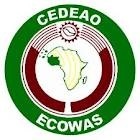Ghana will begin full implementation of the Economic Community of West African States (ECOWAS) Common External Tariff (CET) on July 1, 2015.
Albert Akurugu, Senior Revenue Officer (Valuation) at the Customs Division of the Ghana Revenue Authority (GRA), who disclosed this, said the implementation of the CET will eliminate the smuggling of goods into the country.
Ghana missed the January 2015 deadline for implementing CET adopted by member states of the Economic Community of West African States (ECOWAS).
The development has been attributed to Government’s inability to seek parliamentary approval for the new customs regime.
Speaking to Business Guide at a sensitization workshop for the media on the ECOWAS Common External Tariff, Mr Akurugu said the CET regime will ensure that the same tariffs will be imposed on an eligible item imported into the ECOWAS region, irrespective of the ECOWAS- member country it first lands in.
“It is a vehicle to create a customs union as a complementary condition for the creation of a common market for West Africa,” he said.
Mr Akurugu said there will be no incentive for people to smuggle goods into the country and the subject region when the CET is implemented.
“Smuggling thrives on differentials in import duty rates. So if we have common external tariff under which you can freely circulate the goods, then there will be no incentive for smuggling,” he said.
He revealed that there is going to be a mechanism for sharing revenue among the member states, stating “it does not matter where you enter the sub-region through; whether through Ghana, Nigeria or Togo, once the revenue has been collected, there is going to be a common account in which these monies will be deposited and shared.”
However, he said the sharing ratio is yet to be determined by the heads of member states, explaining that “once that is determined, we envisage that there will be increase in revenue to the sub-region and also a unified voice when we are dealing with a third country.”
Business News of Wednesday, 22 April 2015
Source: Daily Guide
Ghana to begin charging ECOWAS external tariff

Entertainment















